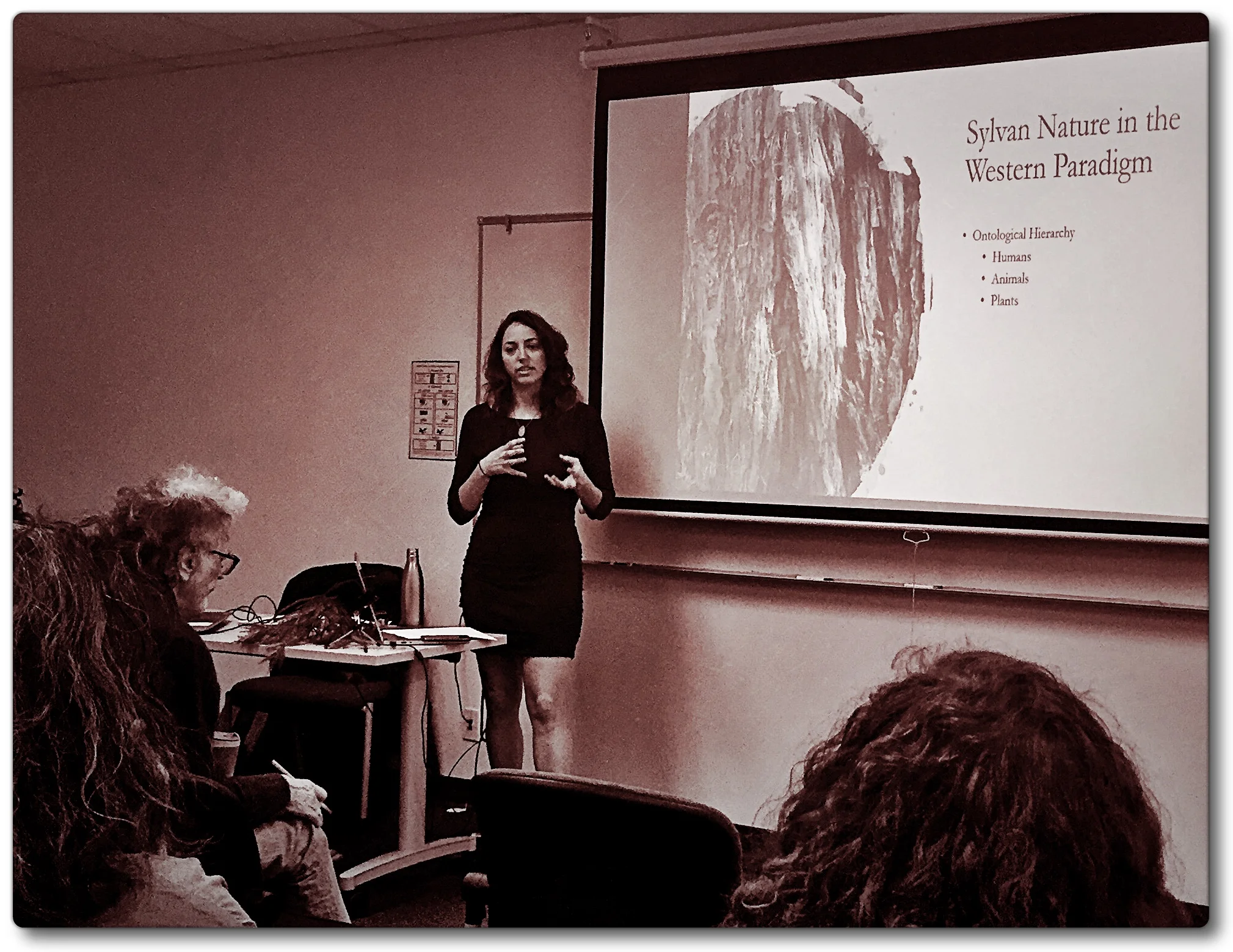Video of my Ph.D. dissertation defense presentation. Filmed on Feb. 28, 2019.
Read MoreHow do our relationships with non-humans affirm our humanity?
A talk as part of the Philosophy, Cosmology, and Consciousness (PCC) Forum series.
Read MoreAs a study of trees in the Western paradigm, this dissertation enters into the conversation with thinkers in plant studies or critical plant studies. Plant studies draws comparison to animal and multispecies studies and engages thinkers across diverse disciplines. Key voices in this nascent field are Matthew Hall, Michael Marder, Luce Irigaray, and Monica Gagliano among others.
Read MoreTrees are pervasive phenomena. Our arboreal neighbors are both larger and older than humans with a dramatically different expression of livingness. Trees are intertwined with imaginative, mythological, social, and economic systems across cultures and throughout history.
Read MoreVideo: Plants have been addressed by philosophers since the beginnings of philosophical history. In present times, new approaches to plants, or more accurately, new vegetal approaches to philosophy, are beginning to emerge in the literature. Spurred by new scientific discoveries of plant capacity and intelligence, thinkers in the Western lineage are revisiting conceptions of plants, which in turn is causing a revisioning of our conceptions of ourselves. How can thinking with plants help us respond to environmental crisis? This talk will review recent literature in plant philosophy and propose a participatory model for relating to our vegetal neighbors.
Read MoreTrees are pervasive phenomena. They exist in our imaginations, grace long tracts of the forested landscape worldwide, and emerge as obvious and surreptitious partners throughout our lives. In the United States alone, the ratio of trees to people is above 200 trees per person.[1] Trees are beings which are both older and larger than humans, yet their prolific generativity has been used and overused throughout human history. Humans often view trees as nothing more than a resource for board-feet of lumber or as unwanted guests on valuable land. This stems from a paradigm in which only humans inhabit the realm of living beings with both plants and animals as merely mechanisms at our disposal. As this paradigm has reached its extreme ends, the entire planet has been ushered into a time of ecological crisis characterized by a shifting climate, ocean rise and acidification, and deforestation. This crisis is not only environmental, but is deeply intertwined with a crisis of both social justice and spirituality. A widespread paradigm shift is necessary to reimagine a sustainable world.
Read MoreConsciousness was thrust upon the Western psyche with its first use in the late 17th century. Since that time, the word has continued to circulate among philosophical and lay writings, yet often with more ambiguity than clarity. Consciousness in contemporary meaning goes far beyond the common definitions of perception, reflection, awareness, or an awareness of being aware. The multiple and complex meanings encoded in evolutionary and emancipatory philosophers’ use of the term deserves further study. This comprehensive exam will focus on definitions of consciousness in philosophical history during the 20th and the 21st centuries with an eye towards an ecological understanding of the contemporary term.
Read MoreIt’s dangerous to be a woman with ideas. Women have never been seriously considered as part of the Western philosophical lineage, which is wrapped up with suppression of feminine power, and have too often been forcibly removed from intellectual circles.
Read More




